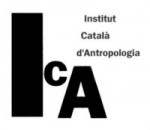7-10 NOVEMBRE 2012
Facultat de Geografia i Història - Universitat de Barcelona
Dimecres 7/11/2012
Dijous 8/11/2012
Divendres 9/11/2012
Dissabte 10/11/2012
From Public Places to State of Exception Zones:Istanbul’s Alevi Populated, Leftist Identified Neighborhoods
Department of Anthropology (dy75@cornell.edu)
Abstract
Drawing on the experiences of Alevi community in urban Turkey, the paper I would like to present will discuss the ways in which a marginalized community became one of the central forces of revolutionary struggle by the 1970s. Alevism is a liberal and even secular sect of Islam, which has been associated with left-wing politics. Mass migration of the Alevi community to the big cites began in the 1970s as a result of a number of violent nationalists attacks they faced in their hometowns. First, the paper will discuss the ways in which Alevi populated neighborhoods have become the places of revolutionary left in Turkey. After discussing the activist history of these neighborhoods and its significance in Turkey’s history of opposition and resistance, the paper will point out different governmental techniques and state performances that led to social and spatial isolation of these neighbourhoods. The paper will argue that Alevi neighbourhoods, in which autonomous governments established in the 70s, were one of the most crucial public spaces in Istanbul that allowed transformative multi-ethnic and interclass interactions/encounters. However, by the 1990s in relation to the development of unofficial state of exception policies in the urban space where politically “dangerous” populations live, these neighbourhoods turned into isolated places in which fear and violence prevails. The paper will illustrate the processes and governmental techniques that contributed to reconstruction of these neighbourhoods as “state of exception” zones and analyse the effects of these processes not only on the Alevi community but also on the urban life.





